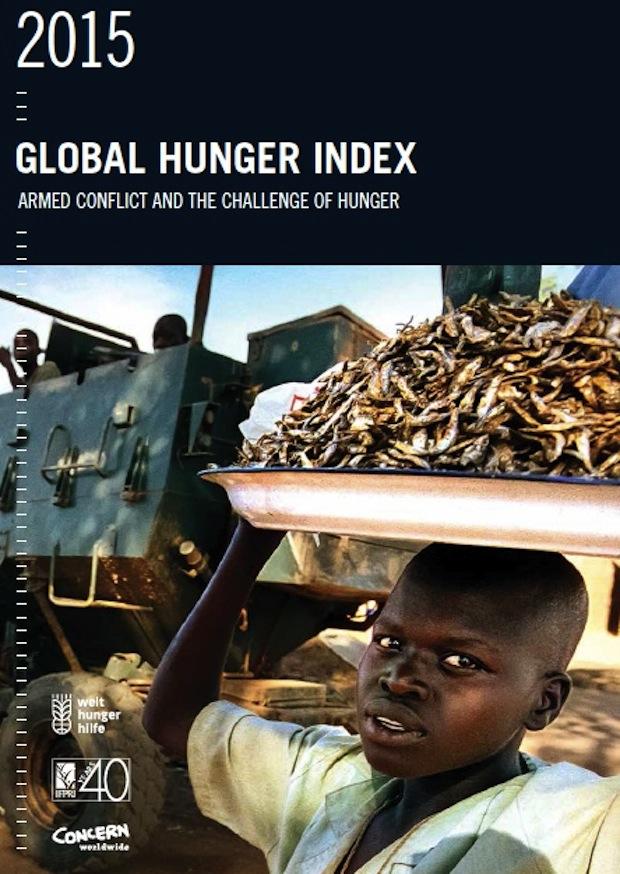
Shenggen Fan
Announcing the publication of the 2015 Global Hunger Index: Armed Conflict and the Challenge of Hunger. This is the tenth edition of the report, published by the International Food Policy Research Institute in collaboration with Welthungerhilfe and Concern Worldwide.
This year's index is based on a new and improved formula that not only replaces the child underweight indicator of earlier years with child stunting and child wasting, but also standardizes the component indicators. To focus attention on various aspects of hunger, the index is calculated for 117 developing and transitional countries using four indicators: the proportion of people who are undernourished; the proportion of children under age five who suffer from wasting (low weight for height, reflecting acute undernutrition); the proportion of children under age five who suffer from stunting (low height for age, reflecting chronic undernutrition); and the mortality rate of children under age five.
This year, the overall Global Hunger Index (GHI) score for the developing world fell by 27 percent since the 2000 GHI. And some countries, including Brazil, Mongolia, and Croatia, made dramatic improvements, cutting their scores by more than half since the 2000 GHI. However, 52 countries are still experiencing serious or alarming levels of hunger, with the worst scores in Central African Republic, Chad, and Zambia. Clearly much still needs to be done to eliminate hunger.
Armed conflict and the challenge of hunger were the focus of this report's essay written by Alex de Waal, executive director of the World Peace Foundation and the author of Famine Crimes: Politics and the Disaster Relief Industry in Africa. He writes of a historic yet unheralded achievement of the last 50 years. While starvation due to famine was common throughout much of the 20th century—with more than 15 million people dying of famines in each of five decades—famines that cause more than one million deaths each seem to have vanished. And those that kill more than 100,000 people each are also much less common.
In light of the world's growing migrant crisis, we must consider what can be done to protect displaced people from severe hunger. Although conflict and hunger often travel together, history has shown that hunger need not result from conflict. All people, no matter where they live, have a right to be protected from famine. Besides economic development, better food policy, and conflict resolution, political commitment at the highest levels is needed to prevent a return of famine. Countries in need should receive humanitarian aid, regardless of their standing with any other government.
If you would like to receive a printed copy of the report, please contact Michael Go at m.go@cgiar.org. I hope you find the 2015 Global Hunger Index informative and thought-provoking.
IUFoST Scientific Information Bulletin (SIB)
FOOD FRAUD PREVENTION